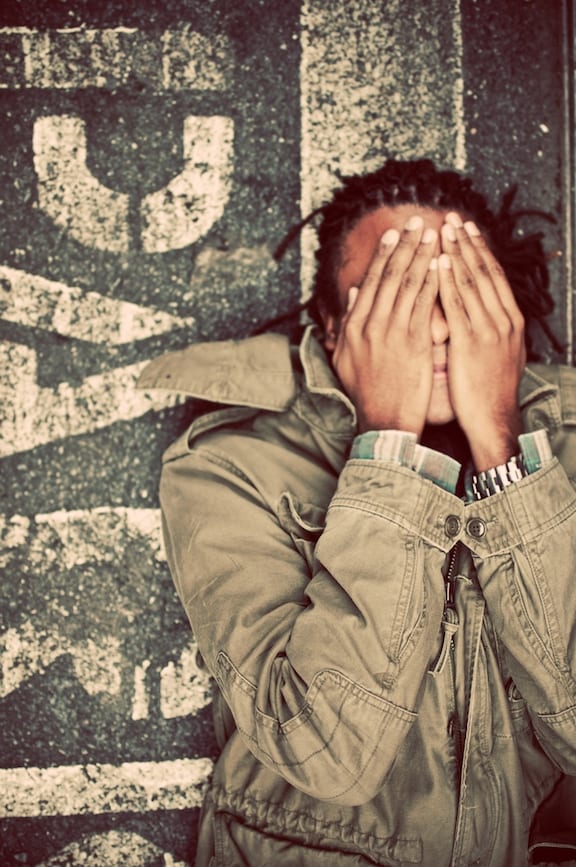Social media is the latest target of government-sanctioned censorship.
[what's happening all around the world]Do you remember reading George Orwell’s “1984” and Ray Bradbury’s “Fahrenheit 451” back in school, during the days of required summer reading? Hopefully, you do. They are extremely important reflections on freedom and society following the nightmares of World War 2.
To this day they teach us the importance of freedom of expression, speech, and access to information. They show us what could transpire should leaders of society ever violate those [our] essential rights.
We always believed they were lessons on how to ward off dystopia not cause it.
Nations like China, which have long been known for their bans on information and “unpatriotic content” have been using censorship as a tool of control for years.
Take the recent ban on Winnie-the-Poo, which went into effect following the circulation of viral internet memes comparing the fictional (honey-gluttonous) bear to President Xi. If you live in China and are found in possession of contraband like this you could face jail time!
Whereas this new segment of Chinese social media censorship is not shocking in the least, what’s happening elsewhere – and close to home – is seriously alarming.
“Social media is a luxury, not a right.” - President Museveni
Last month in Uganda. President Yoweri Museveni passed an unprecedented bill: a tax on users accessing any of 60 social media apps.
Coupled with the social media tax, which was passed without public participation and requires internet users pay 200 Ugandan shillings ($0.05) to access certain apps, is a 1% tax on mobile monetary transactions. The only way Ugandans can pay the social media tax is through an online mobile monetary transaction.

We know it does not sound like a lot of money, but all principles aside, the tax will undoubtedly make it more difficult for low-income and unemployed people to stay connected with friends and family, as well as access important information online.
Already the price for a 1GB mobile broadband plan is 15% of average monthly incomes in Uganda, according to figures from Alliance of Affordable Internet. World Bank figures show that just 22% of the country is online.
With these additional taxes, it is likely that percentage will shrink even further.
The rationale behind the new bill is to discourage what President Museveni deems “gossip.”
This, in effect, labels all social media commentary he disagrees with as opinionated, misinformed rhetoric that is subject to suppression.
At a time when immediate, news-driven platforms like Twitter are essential outlets for civilian coverage on political protests and war, this poses an even greater threat to Uganda’s social liberties.
What’s worse, Uganda isn’t alone.
The Tanzania government recently imposed a $930 annual tax on bloggers who want to publish online.
The Egyptian government passed a law allowing government officials to shut down any social media account with five thousand or more followers, who they believe is spreading false information.
If this doesn’t worry you, maybe something a little closer to home will.
[Government sanctioned censorship in America]
70% of Americans get their news from two sources: Google and Facebook.
On July 31, Politico reported that Facebook was shutting down inauthentic accounts “sought to inflame social and political tension in the United States, and said their activity was similar — in some cases — to the Russian accounts during the 2016 election.”
Bye, Bye Infowars.
Most of the accounts removed by Facebook (and other social platforms) were outlets of misinformation, instigating a dialogue that sought to undermine our nation’s political and social values. What they were saying still causes harm and promotes hate with the specific intent to do so.
Take Alex Jone’s Infowars, for instance. His media channels repeatedly violated policies against hate speech and glorifying violence. He was warned multiple times by social platforms (YouTube, Facebook, Twitter, and Spotify ) to end all hate speech that violated their policies, and he refused.
On August 6, Facebook announced they had permanently removed four pages associated with Alex Jone’s media brand, saying, “We believe in giving people a voice, but we also want everyone using Facebook to feel safe. It’s why we have community standards and remove anything that violates them, including hate speech that attacks or dehumanizes others.”
In addition to the removal of Infowars, however, were bans on other accounts — some without any explanation, like the left-leaning Latin American news network Telesur’s English speaking Facebook page, which had no content violations.
You see, Facebook targeted and eliminated these “divisive” content facilitators with the help of Atlantic Council, on whose board you’ll find names like Henry Kissinger, former CIA chief Michael Hayden, former acting CIA head Michael Morell and former Bush-era homeland security chief Michael Chertoff.
Basically, Zuckerberg gave some government officials control over airing and eliminating nationwide media they considered politically and socially hostile to the US.
But what about our First Amendment rights?
The First Amendment only addresses the government’s power to eliminate or suppress forms of expression that breach the peace or promote violence. It says nothing about private companies like Facebook, Twitter, Instagram, etc. changing their privacy policies to refuse a user from saying something derogatory or misinformed on their network.
“If a corporation chooses to eliminate an account on their own accord then it is not violating the First Amendment rights laid out by the constitution of the United States. If the government does it then its censorship.”
Wait a darn minute…
Do these rules still apply even when members of the United States government are involved in the decision-making process of which accounts a private corporation deletes?

A stunning poll conducted by Ipsos and reported Tuesday, August 7, by the Daily Beast, suggests that a plurality of Republicans would have no problem trashing the First Amendment altogether.
We repeat, 43% of Republicans just said Trump “should have the authority to close news outlets engaged in bad behavior.” Of that 43%, 48% believe news is the enemy of the people.
Take a second to think about that…truly think about it.
What are all the “news outlets” you read and watch on a daily basis? . . . Twitter (we mentioned), Facebook, Worpress, Reddit, NPR, even paperback books can be considered a news source. . . you get where we’re going with this.
There is no distinction between a traditional news outlet and a social information platform anymore. No widely accepted definition of “bad behavior” on social media. No separation of opinionated rhetoric and fact-based news coverage. And no identifier of who is in charge of mediating all of this information: the government, the president, the corporations, or the people.
When the lines are blurred between corporate and government interference, freedom of expression can be taken advantage of far too easily, as we are seeing happening in Uganda, Egypt, Tanzania and here at home.
You would never think censorship portrayed in “1984” could actually happen. Not in today’s free society, at least. But now that men and women in power are flirting with social media censorship it is hard not to fear the worst.
Today, everything is backward…
“War is peace. Freedom is slavery. Ignorance is Strength.”
– George Orwell, 1984.
NOTE
While there are some governments limiting our means of expression, there are others reinstating certain freedoms.
On August 10, Germany lifted their ban on censoring swastikas in video games like Wolfenstein II: The New Colossus,” Call of Duty: Black Ops,” and “South Park: The Stick of Truth.”
The Entertainment Software Self-Regulation Body (USK) said Thursday that games including banned symbols could now be given a rating in Germany if the use of the symbols is considered “socially adequate.”
That means the symbols must serve an artistic or scientific purpose or be used to represent particular events in history.